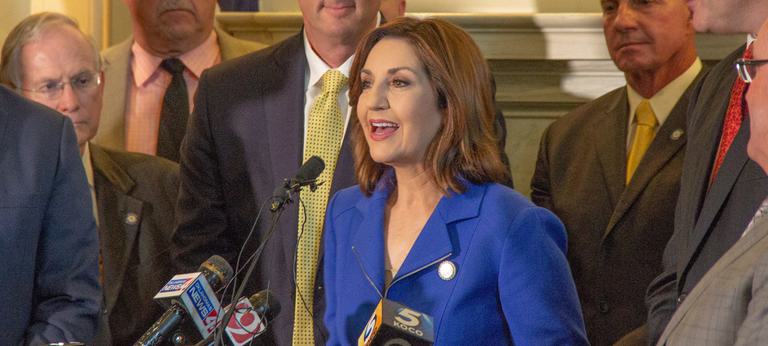
Budget & Tax
Ray Carter | May 30, 2019
Analyst: Spending alone is no measure of success
Ray Carter
Over the last two legislative sessions, state lawmakers have increased appropriations by $1.2 billion. That 17 percent increase is the biggest two-year jump in spending in the last quarter-century. In that two-year period, funding for K-12 schools has increased 20 percent, which is also the largest two-year spending increase for schools out of the last 25 years.
Some lawmakers have touted those numbers as proof Oklahoma is on the right track with some ranking this year’s session among the best in years.
But Mike Davis, a research fellow with the 1889 Institute, says lawmakers are missing the mark if they evaluate progress based on spending alone. He says success should be evaluated based on measurable outcomes, not how much was spent on the front end.
“We want to measure two things: We want to measure effectiveness and we want to measure efficiency,” Davis said. “And we do not want to measure effort or inputs or dollars spent.”
Davis is an author of a policy paper released earlier this year, “Ten Top Tens: State Rankings Worth Pursuing,” in which he and other researchers identified measurable policy goals lawmakers should pursue.
He said policymakers need to have specific, measurable objectives in mind when they advance legislation.
“The question becomes how do you define success?” Davis said. “A key part of that is defining your goals. Your goals are going to determine what really matters in measuring success.”
Davis said three principles should guide goal-setting. First, a policy must be tied to something that can actually be measured. Second, measurement should be of outputs, not inputs. Third, the focus should be on things government can control.
“It’s all well and good to say we want our populace to be really healthy,” Davis said. “But health tends to be mostly about individual choices and the government doesn’t have legitimate role in saying, ‘You must eat broccoli.’”
In the area of education, he noted policymakers often tout increased spending as improvement, rather than focusing on whether academic outcomes change as the result of spending.
“Measuring how much you spend per student doesn’t help you get there,” Davis said. “You have to measure how good are the students going to come out of this and how much are we paying for each incremental improvement?”
When Gov. Kevin Stitt and legislative leaders announced a budget agreement this month, they were quick to tout its inclusion of teacher pay raises and increased school spending. Over a two-year period, lawmakers have increased K-12 funding by $638 million and increased teacher pay by a combined total average of $7,320 apiece.
But when Stitt and lawmakers were asked what measurement of student academic outcomes they expect will improve as a result, they struggled to provide an answer and turned to State Superintendent of Public Instruction Joy Hofmeister, who initially responded, “We’ll have teachers.” Hofmeister went on to say the budget, by putting “a priority on the people who can make the difference for students,” should generate academic improvement that will be reflected in student results on state tests.
The 1889 Institute’s paper highlights several goals officials say lawmakers should focus on when spending money or enacting policy changes. In the area of education, the institute recommends a focus on raising Oklahoma students’ performance on National Assessment of Education Progress results, adjusted for demographics (the state currently ranks 41st), and reducing the percentage of college freshmen requiring remediation courses that effectively repeat high-school content (currently, 40 percent of Oklahoma students require remediation).
Outside education, the institute recommends a focus on providing the greatest value at the lowest taxpayer cost by reining in the number of state and local government employees per 10,000 residents (Oklahoma ranks 26th on this measurement today). The report also recommends focusing on policies that will boost average income per capita, adjusted for cost of living; minimizing regulations that create compliance costs for Oklahomans; boosting the number of prescribers per capita to address health needs; and more.
To simply increase government spending without any focus on also improving outcomes, Davis said, is “a terrible goal.”

Ray Carter
Director, Center for Independent Journalism
Ray Carter is the director of OCPA’s Center for Independent Journalism. He has two decades of experience in journalism and communications. He previously served as senior Capitol reporter for The Journal Record, media director for the Oklahoma House of Representatives, and chief editorial writer at The Oklahoman. As a reporter for The Journal Record, Carter received 12 Carl Rogan Awards in four years—including awards for investigative reporting, general news reporting, feature writing, spot news reporting, business reporting, and sports reporting. While at The Oklahoman, he was the recipient of several awards, including first place in the editorial writing category of the Associated Press/Oklahoma News Executives Carl Rogan Memorial News Excellence Competition for an editorial on the history of racism in the Oklahoma legislature.